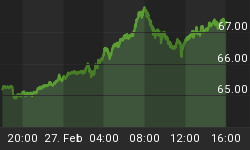This week Washington displayed the kind of "bipartisanship" that will bankrupt our country and wreck our currency. Coming at a time when both parties say they want to address our long-term fiscal imbalances, the compromise extension of the Bush era tax cuts should be a wake-up call to anyone who somehow expected the American leadership to ever have an "adult conversation" about the country's long term economic health.
The administration and Congress are prepared to take the bold political move of not raising some taxes while significantly lowering others and greatly expanding Federal benefits. The entire cost of the $900 billion package will be financed entirely by adding to the national debt. Talk about tough love. While other countries consider ways to live within their means, Washington is intent on devising ever more creative ways to delay the day of reckoning.
While Democrats wanted more government spending,they were unwilling to vote for broad-based middle class tax increases to pay for it. Instead they want what Democrats have always wanted: higher taxes on the "rich." Republicans want lower taxes, but as has become typical, they were unwilling to cut government spending to enable it.By running up the deficit both sides get what they want without any political sacrifice.Sure, they break their campaign promise to cut the deficit, but the political fallout that results will be far less costly than voting for the tax hikes or spending cuts.
In truth however, there are no real tax cuts in this proposal. The true burden of government is not measured by how much it taxes but how much it spends. Since this deal ensures that government will be more expensive next year than it was this year, American citizens will have to shoulder the added cost. Just because Congress has decided to deliver the bill with debt rather than current taxes does not mean that the spending will not be paid for. The only thing the plan accomplishes is to alter the means by which government spending is financed.
If we had a truly independent Federal Reserve (one that was not willing to buy all the excess government debt) these larger deficits would make much more of an immediate and discernable impact on the financial markets and the economy. A glut of government debt should lead to much higher interest rates. Higher government borrowing also tends to divert savings and investment capital that would otherwise flow into the jobs-creating private sector. However, with the Fed engaging in quantitative easing, Ben Bernanke's "Sixty Minutes" denial notwithstanding, the money needed to buy the additional debt is simply printed. As such,the nasty side effects have been avoided in the short term. Instead we are set up for more inflation and a weaker dollar down the road.
Those who understand the implications of the "inflation tax" have already moved savings and investments out of U.S. dollars, expecting that the value of their savings and investments would diminish as a result of the inflation the Fed creates. In addition, working Americans will see the real values of their paychecks fall, as consumer price increases outpace the gains in after tax incomes.
As a result, this plan will do nothing to help our economy. The benefits of holding taxes low will be more than mitigated by damage done by larger deficits. In fact, despite the Fed's efforts to artificially suppress interest rates, the fear of larger deficits is already driving rates up. Many on Wall Street have jumped to the erroneous conclusion that rates are rising because this new fiscal stimulus will spur economic growth, which in turn will make further quantitative easing unnecessary. In truth, the only thing this plan will stimulate is larger deficits, meaning the Fed will be forced to do more, not less QE in an effort to restrain rates.
It is the fear of additional QE that has really spooked the bond market. Sure Fed buying might initially boost treasury prices, but as the additional dollars created to buy the bonds work their way into the economy, rising consumer prices erode the present value of the bonds.
Unfortunately, nothing in the plan addresses the fundamental economic imbalances that underlie our economy and that brought us to the brink of ruin in the first place. What we really need are massive cuts in government spending so we can have true tax relief. In addition, we need to remove the government-imposed barriers which make our economy uncompetitive, and which are preventing market forces from correcting the imbalances. By expanding government and increasing debt, the plan puts us farther than we have ever been from a real recovery.
Peter Schiff is president of Euro Pacific Capital and host of The Peter Schiff Show.
For in-depth analysis of this and other investment topics, subscribe to The Global Investor, Peter Schiff's free newsletter. Click here for your free subscription.
Click here to download Peter's latest Special Report: My Five Favorite Gold & Silver Mining Stocks.
Please note: The Peter Schiff Show will be produced by a new media company created by Peter Schiff. Euro Pacific Capital is not affiliated with this company. Neither Euro Pacific Capital nor any of its affiliates are responsible for the contentof SchiffRadio.com.















